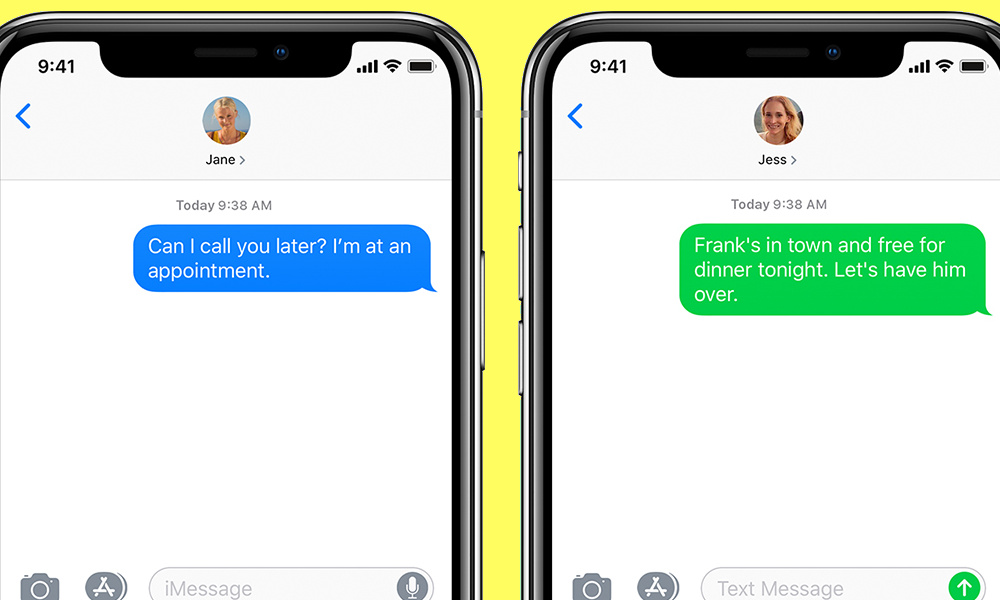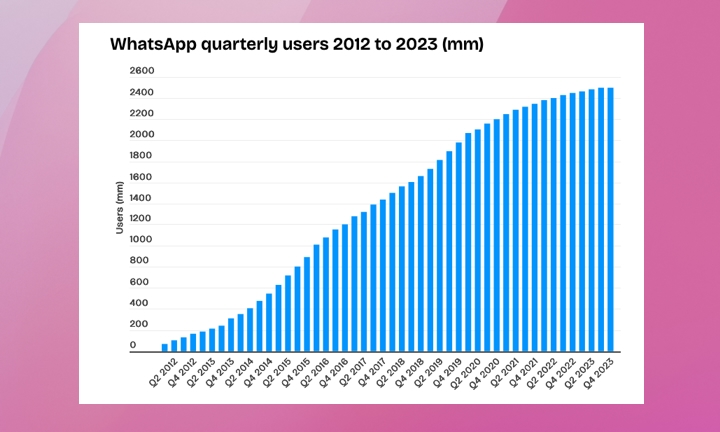How Does WhatsApp Make Money? Did You Know?
 Credit: Eyestetix Studio / Unsplash
Credit: Eyestetix Studio / Unsplash
Toggle Dark Mode
We try to keep you informed on all things WhatsApp. About one-quarter of the people on the planet use it — more than 2 billion — and its popularity can be attributed to several key factors.
A few of these include ease of use, cross-platform capability between iOS and Android devices, end-to-end encryption, and free messages and calls. Remember, Facebook (now Meta) purchased WhatsApp in 2014 for more than $19 billion.
This week, Apple confirmed its Messages app will support RCS messaging (Rich Communication Service). RCS will replace SMS (Short Messaging Services) as the default communication protocol between iOS and Android devices. Right now, messages from Android users show up as green bubbles rather than blue in Apple’s Messages app. When people on iOS and Android text each other, messages are shortened, photo and video quality is reduced, and messages aren’t end-to-end encrypted. At least some of these things will change with iOS 18.
This news begs the question as to whether or not Apple’s adoption of RCS messaging will lead to fewer people leaving Messages for WhatsApp. At the same time, perhaps RCS integration will inspire people to abandon WhatsApp for Messages in order to maintain a more native Apple experience.
Is this a big threat to WhatsApp? Time will tell. But it did make us curious as to how WhatsApp, which is free to users, makes money.
How WhatsApp Makes Money
WhatsApp began nearly 15 years ago with a subscription model charging users in some countries $1 annually. Between 2012 and 2023 WhatsApp grew from under 200 million users to more than 2.4 billion.
In a 2016 SEC filing, Facebook stated: “We currently monetize WhatsApp in only a very limited fashion, and we may not be successful in our efforts to generate meaningful revenue from WhatsApp over the long term.” However, the estimated revenue in 2022 was $906 million, and more than $1.2 billion in 2023.
It’s apparent WhatsApp makes most of its revenue via its WhatsApp Business service. Meta offers separate products for medium-to-large-sized businesses and small businesses to communicate with customers. This includes everything from automated conversations and “smart routing” for conversations when a live agent is needed to password verification and customized customer conversational experiences.
The real value for Meta in all this is likely the behavioral data it captures from WhatsApp. Remember, users often share their entire contact list and location data with WhatsApp. This can be used for targeted advertising across Meta properties like Facebook and Instagram.
Both WhatsApp and iMessage support end-to-end encryption (E2EE). However, it seems like the jury’s out as to whether Apple will support E2EE on RCS messaging as that’s not part of the baseline RCS Universal Profile but rather something Google has cooked up for its own implementation of RCS. If Apple skips E2EE, this would leave WhatsApp as the more secure app for communications between iOS and Android devices — at least for now.
If Apple does support end-to-end encryption for RCS, will users still want or need WhatsApp? We’ll continue to follow the impacts of Apple’s promised support for RCS protocol and its impact on WhatsApp and keep you posted.










